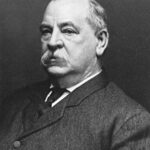Presidential Diplomacy in Action
The Venezuelan Boundary Dispute of 1895 demonstrated President Grover Cleveland’s exceptional diplomatic skills. Britain and Venezuela had quarreled over territorial boundaries in British Guiana for decades. Cleveland recognized this dispute threatened American interests in the Western Hemisphere. His decisive intervention prevented potential European colonization of South American territory.
The Monroe Doctrine Applied
Cleveland invoked the Monroe Doctrine with unprecedented force and clarity. He demanded Britain submit to international arbitration regarding the Venezuelan Boundary Dispute. Secretary of State Richard Olney delivered a stern message to London in July 1895. The administration declared European territorial expansion in the Americas unacceptable. 📊 This marked the first major application of the Monroe Doctrine since its 1823 proclamation.
Strategic Diplomatic Pressure
Cleveland’s approach combined firmness with respect for international law. He requested Congress authorize a boundary commission to investigate the dispute. ⚠️ The president warned that American findings would be binding regardless of British cooperation. This measured escalation pressured Britain while avoiding immediate military confrontation. The strategy demonstrated American resolve without triggering unnecessary conflict.
Impact:
Immediate Diplomatic Victory
The Venezuelan Boundary Dispute resolution established America as a major diplomatic power. Britain agreed to arbitration in early 1896, validating Cleveland’s Monroe Doctrine strategy. The peaceful resolution prevented costly military intervention in South America. Venezuela gained international recognition of its territorial claims through American advocacy. 🌍 European powers acknowledged American influence in Western Hemisphere affairs for the first time.
Long-term Hemispheric Leadership
Cleveland’s handling of the Venezuelan Boundary Dispute transformed inter-American relations permanently. Latin American nations recognized the United States as their protector against European encroachment. The successful arbitration established precedent for peaceful dispute resolution in the Americas. 📈 American diplomatic prestige increased significantly throughout Europe and South America. Future presidents would reference this achievement when asserting American regional leadership.
Constitutional and Legal Precedent
The dispute resolution demonstrated effective executive leadership in foreign affairs. Cleveland’s measured approach balanced congressional authority with presidential diplomatic prerogatives. 🔥 The crisis proved America could challenge European powers without resorting to warfare. International law principles gained strength through successful arbitration proceedings. This precedent influenced American foreign policy well into the twentieth century, establishing frameworks for peaceful conflict resolution.
